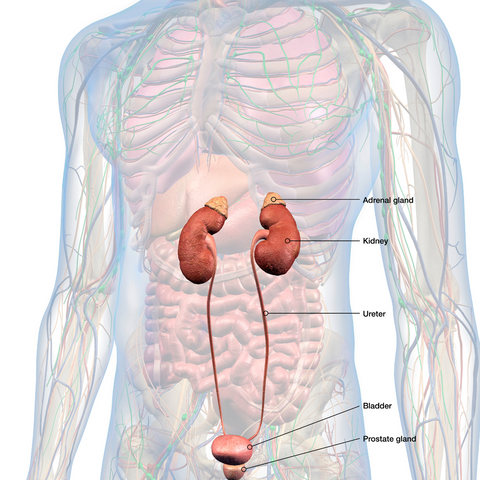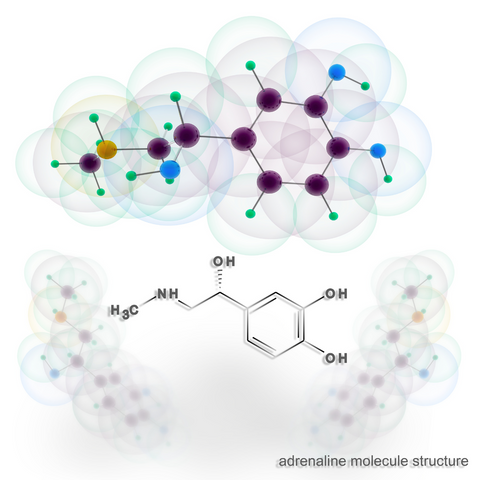This week I'm delving into the ins and outs of stress and adrenal fatigue. It’s certainly helped me to understand how these feelings better and what we need to do to manage stress in our lives.
Adrenal fatigue
The adrenals are our stress hormone glands, and they become fatigued as a result of intense or prolonged periods of stress. The symptoms they develop can be brought about after acute infection or continuous exposure to a stressful situation. According to The American Institute of Stress, 75% - 90% of visits to the doctor are for stress-related issues, and stress can be the root cause of numerous causes of death like heart disease, cancer and lung ailments.

The adrenal glands are located above the kidneys. They are made up of two parts: The adrenal cortex in the outer region and the adrenal medulla in the inner region. It's the adrenals' job to produce key hormones like:
Hydrocortisone: This controls the body’s use of fats, carbohydrates and proteins.
Corticosteroids: These suppress inflammatory reactions and affect immunity.
Aldosterone: This regulates sodium and potassium and maintains blood pressure.
Androgenic steroids: These hormones are converted elsewhere in the body to female hormones and male hormones.
The adrenal medulla helps the body cope with emotional and physical stress.
Adrenaline is released in a stressful situation which increases the heart rate and helps blood flow to the brain and muscles. It also helps to convert glycogen to glucose in the liver. Noradrenaline increases blood pressure in response to acute stress. Disruption in the body's homeostasis affects the adrenal glands, and, ultimately, overproduction of adrenaline causes illness.

Stressors might include:
Death of a loved one or divorce
Lack of sleep, trauma or chronic disease
Nutritional deficiency or a lack of vitamins
Environmental stressors like pollution, radiation and heavy metals
Symptoms of adrenal fatigue:
Exhaustion
Dizziness
Difficulty concentrating
Anxiety/depression
Chronic pain
Chronic stress:
Lowers antioxidant levels
Reduces natural killer cells
Shrinks telomeres
Effects insulin sensitivity
Reduces nitric oxide levels
Degrades bones
You can help manage stress responses nutritionally by taking adaptogens like Vitamin B5, Vitamin B, Magnesium, Vitamin C and Chlorella.
Ways to combat stress:
Be well hydrated
Eat well. Lots of vegetables and green foods
Adequate sleep
Deep breathing exercises
Physical exercise
Yoga
Acupuncture
Sauna

I've found daily yoga and breathing exercises incredibly helpful and I find cold water therapy very beneficial too. I take Magnesium Glycinate every night and eat a mainly plant-based diet full of raw living foods. I juice and take Wheatgrass and Chlorella daily, and have recently introduced a Liposomal Vitamin B complex and extra Liposomal Vitamin C to my regime.
If you are suffering from stress do get help and and try to talk about it. There’s so much help out there if you know where to look and of course, reach out to me. Together we are strong.